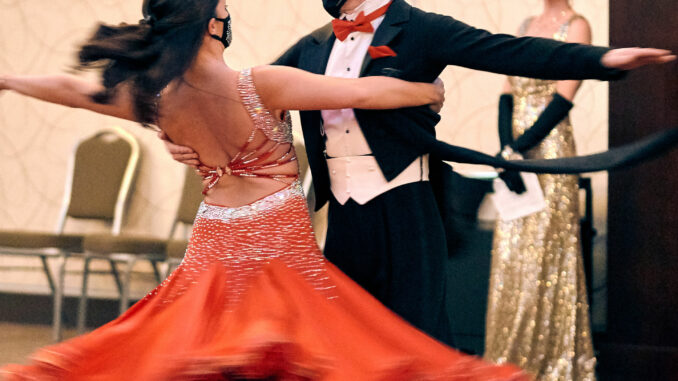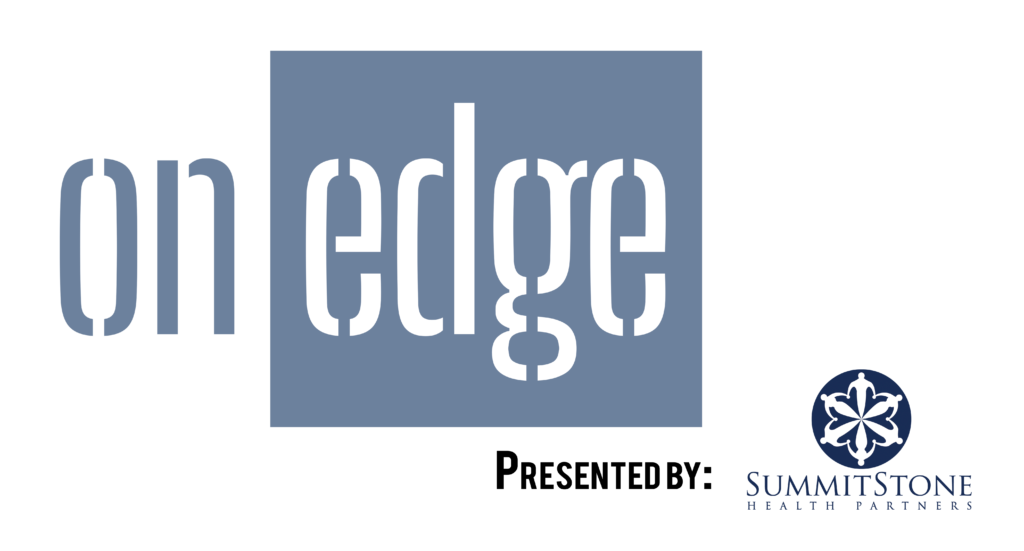

Annie Lindgren
North Forty News
The Avery Center held the Third Annual 12th Night Viennese Ball on January 8. This event, held during National Sex trafficking month, was for a great cause. All the money raised went to support the Avery Center in its mission to end commercial sexual exploitation.
This event, held in the Canyon West Ballroom at the Lincoln Center, included various 12th Night traditions worldwide. Some of the practices include delicacies like spiced wassail punch, while others were traditional waltzes, a coronation of the King & Queen of the Ball, and elegant and festive costumes.
The event had live music by Cache La Pompe, courtesy of the music event fund by the Bohemian Foundation. “We had a waltz lesson by Maya from Maya’s Ballroom Dance, so even people who didn’t know how to waltz would be able to waltz the night away with us after her lesson!” Shares Daniel Eastman, Director of Policy for the Avery Center, pictured with Maya. There was a good crowd on the dance floor, eager for lessons. Food was provided by Coffeehouse Ten24, an open bar with wine supplied by Hillside Winery and beer from Loveland Ale Works.
In 2000, the Trafficking Victims Protection act became the first comprehensive federal law to address trafficking in persons. The law handled prevention, protection, and prosecution. However, the US did not formally acknowledge that trafficking was happening domestically until a re-authorization of the Act in 2010.
The Avery Center, formerly known as ‘Free Our Girls’, was founded in 2014 to address the gap in direct services for adults experiencing commercial sex trafficking in Northern Colorado and across the US. They are the only anti-trafficking direct service organization north of Denver and are a survivor-led organization.
The Department of Justice defines Human trafficking as a crime that involves compelling or coercing a person to provide labor or services or to engage in commercial sex acts. The coercion can be subtle or overt, physical or psychological. Sex trafficking is generally understood as using force, fraud, or coercion to compel a person into commercial sex acts.
Founder and director Megan Lundstrom discovered that pimp-controlled sex trafficking meets all 15 characteristics of a cultic group. After much research on the topic, the organization uses this cultic theory in its work. Most survivors of domestic sex trafficking require psychological intervention and aftercare deprogramming before reintegrating into the community. The depth of the impact of such abuse tactics as mind control and thought reform often involves a lifetime of healing.
When it comes to sex trafficking, there are no boundaries. Victims can be of any age, gender, or demographic. For example, in 2017, 17 children across Colorado and Wyoming were recovered by an FBI Innocence Lost task force. Half of the children were male victims.
The Avery Center, located in Greeley, partners with the University of Northern Colorado for academic research in the field of anti-trafficking work. They continue to expand their services. A newer service arm focuses on economic empowerment-focused programs, such as financial literacy curriculum and job training programs, peer support groups, and basic needs resource delivery. While most of the direct services take place in Greeley, several programs are now available nationwide online.
For more information, visit theaverycenter.org
Support Northern Colorado Journalism
Show your support for North Forty News by helping us produce more content. It's a kind and simple gesture that will help us continue to bring more content to you.
BONUS - Donors get a link in their receipt to sign up for our once-per-week instant text messaging alert. Get your e-copy of North Forty News the moment it is released!
Click to Donate
